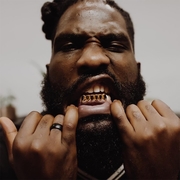|
COVID-19 posted:“Police responsibilities” are simply oppressing PoC and poor people, shifting these responsibilities to other departments with different names and uniforms are still going to end up with a racist system and oppressed people. Yuzenn posted:Abolition != complete lawlessness and nothing in place to deal with laws, it's completely dissolving what exists currently and spreading some of the responsibilities that the Police already shouldn't have and then the functions in which an armed force are required can remain but for a completely new and different and much smaller entity. I think this is the crux of a lot of the problems here. What is police abolition given these two opposing views?
|
|
|
|

|
| # ? May 20, 2024 17:36 |
|
CelestialScribe posted:I think this is the crux of a lot of the problems here. Mental wellness check-ups by social workers woth a robust suite of services on offer - example of a much better way to handle situations police are currently erroneously used to handle. Stop and frisk - not neccessary, no one needs to be doing this. Rampaging elephant in the downtown corridor - dispatch some small armed force with very clear boundaries on their permitted action and robust systems of accountability should they cause undue harm.
|
|
|
|
What it comes down to is "what happens when there's an active shooter or threat on my life". That's what gets people hung up. So I think any discussion of abolition should really lead with that to get doubters on board.
|
|
|
|
UnknownTarget posted:What it comes down to is "what happens when there's an active shooter or threat on my life". That's what gets people hung up. So I think any discussion of abolition should really lead with that to get doubters on board. The main response to that is, “cops don’t help you now anyway”. Which is usually true. But I don’t think that answer is really going to persuade people.
|
|
|
|
One thing I do worry about for the idea of reducing the cops to bodyguards for other government employees is that, even if policy is to only bring a cop if it's necessary, they'll end up coming every time a racist idiot exaggerates about the threat of a black man to 911 Not really sure that's solvable by policy though. And still better than the status quo of cops patrolling black neighborhoods looking for black men to exaggerate the threat of
|
|
|
|
Well, as an example, one time I phoned the police non-emergency line because there was a truck (I assume) that had dropped some wooden shipping crates in the middle of the road and it was creating a traffic hazard. My reaction was to call the police, because they are the ones I associate most strongly with the idea of "making sure the roads are safe and traffic laws are being obeyed." They said "we'll refer your request to the roads department and they'll go round and clear the debris." Most of the poo poo we call the cops for does not actually require the cops. In some cases, they won't even do it! If "the police" continue to exist as a concept, and reasonably speaking I can't see a way to get rid of them entirely, immediately, it should be as a very small, elite agency which is called to deal with things that other agencies cannot handle; in a sense, they should operate like the FBI does relative to police departments in the US right now, subject to strict oversight. Expand the availability of highly trained and specialized law enforcement officers to deal with the 5% of cases that actually require expert, armed intervention, and get rid of local police departments. Relative to my earlier example: yes, you may have a person who refuses to pay a traffic fine, then drives without registration after they've been disallowed from renewing their registration, etc., etc., but those people are a tiny fraction of the total number of people pulled over for a traffic infraction. Further: a lot of cops will say "well, you never know what's going to happen during a routine traffic stop," but that's only because, at the same time, the police officer is running warrants, and looking for other offenses. If everyone knew, as your average white guy knows, that a traffic stop will result in nothing more than a lovely fine you have to pay, would anyone ever pull a gun during a traffic stop? Would anyone bother running from the cops? If you have 10 kilos of cocaine in the trunk, let's say, and you got pulled over by a traffic enforcement official who was not a cop and was only able to give you a $200 fine for speeding or whatever, isn't it logical to believe that would be a much safer experience for everyone than if you were worried about catching decades in prison for a drug trafficking charge? No, you'd just pull over, get your fine, and some higher level of law enforcement agency would be responsible for making the legal case that you're a drug trafficker rather than relying on dumb luck during a traffic stop. Just look at all the good results that have come from police departments having a no-pursuit policy: fewer accidents, fewer people put in danger, no real difference in the general level of crime.
|
|
|
|
Crumbskull posted:Mental wellness check-ups by social workers woth a robust suite of services on offer - example of a much better way to handle situations police are currently erroneously used to handle. Sure. But according to COVID19 and a number of other abolitionists, even what you describe is beyond what they would consider reasonable.
|
|
|
|
PT6A posted:Relative to my earlier example: yes, you may have a person who refuses to pay a traffic fine, then drives without registration after they've been disallowed from renewing their registration, etc., etc., but those people are a tiny fraction of the total number of people pulled over for a traffic infraction. Right! But for some reason, no one wants to answer what we do with these people. What do we do with folks who refuse to stop making noise at 2am? What about people who drive unregistered vehicles? What about people who stalk women? If different agencies handle these situations, great! No problem. If communities are left to handle these issues on their own, we are going to end up with a lot of communities that are safer. We are also going to end up with a lot of communities where people end up dead for all sorts of crimes. Maybe that’s better, on the whole, for a lot of people. It certainly isn’t a satisfying outcome for me. So until someone can answer how to navigate those situations with a community policing model, I’ll continue to advocate for defunding the police and spreading their responsibilities to other authorities and workers who are better equipped.
|
|
|
|
UnknownTarget posted:What it comes down to is "what happens when there's an active shooter or threat on my life". That's what gets people hung up. So I think any discussion of abolition should really lead with that to get doubters on board. What happened in Parkland, FL? The school resource officer sat on his loving rear end and did jack poo poo, because of course your average donut jockey isn't going to be capable of dealing with a spree shooter in any event. That prick was only ever there to gently caress students over, and likely minority students for the most part. The question of "if the police are abolished, who will protect me from dangerous lunatics?" is only reasonable if you accept axiomatically that the police will, in fact, protect you from dangerous lunatics. They will mostly not protect you from that, and depending on the circumstance, they may work against protecting you from dangerous lunatics, or they may be the dangerous lunatic who is threatening you (as we've seen recently) so that question is based on a false premise.
|
|
|
|
I've been reading this thread, and "8 can't wait" definitely isn't enough. Wasn't there a similar campaign a few years ago (with ~5-6 things), but they were actually good reforms that would do something? I want to direct my friends away from this 8 poo poo, but it would help if I could remember this campaign with some snappy marketing and graphics.
|
|
|
|
CelestialScribe posted:Right! But for some reason, no one wants to answer what we do with these people. quote:What do we do with folks who refuse to stop making noise at 2am? Add a fine to their property taxes or the property taxes of their landlord if they do not respond to a warning. That poo poo will be dealt with in either event. quote:What about people who drive unregistered vehicles? Boot/confiscate the vehicle. quote:What about people who stalk women? If they refuse to stop, this is a situation where a state law enforcement agency under the direct supervision of the judicial system could be used. I mean, this already exists in a sense. I think Alaska has a system of community public safety officers in remote locations who aren't armed, and can deal with minor disputes, and if they reach the point that they cannot handle the situation, then they summon the state troopers to deal with the problem. How many problems do you think they've solved in a constructive fashion, compared to a situation where the state troopers have an outpost in every village and have the authority to immediately crank everything up to 12?
|
|
|
|
Serious question: How does a state handle organized crime without a police force? Like, how would you stop the mob from taking over? This feels like a somewhat unique problem, in that it will require a large, organized system of violence to curb. Like, if a dude starts hurting people, you really don't need more than a half dozen armed officers to handle it. But a large criminal organization might be able to wrest control from a nonviolent state. What sort of solution would there be? Would it be an olde timey posse? To deputize and train civilians to prosecute an organized threat?
|
|
|
|
PT6A posted:Add a fine to their property taxes or the property taxes of their landlord if they do not respond to a warning. That poo poo will be dealt with in either event. This is all great! But again, it’s not community policing. How would community policing deal with these situations?
|
|
|
|
CelestialScribe posted:This is all great! But again, it’s not community policing. How would community policing deal with these situations? You need to release whatever your definition of "community policing" is, and accept the fact that it is not necessarily decentralized mob justice. The solutions that he proposed are indeed forms of community policing. I think you are having trouble grappling with the fact that it's something other than 24/7 lynch mobs and witch hunts, because that is the narrative that popular culture has driven into our collective skulls. Cpt_Obvious fucked around with this message at 03:46 on Jun 8, 2020 |
|
|
|
Cpt_Obvious posted:Serious question: Setting aside the fact that our current system is notoriously bad at stopping the mob from taking over, can you clarify what you mean by the mob taking over?
|
|
|
|
Crumbskull posted:Setting aside the fact that our current system is notoriously bad at stopping the mob from taking over, can you clarify what you mean by the mob taking over? Creating their own monopoly on violence and setting up, for example, a protection racket or whatever violent method of extracting wealth. PS. I am in no way arguing against community policing, I find this particular problem to be of concern.
|
|
|
|
Cpt_Obvious posted:You need to release whatever your definition of "community policing" is, and accept the fact that it is not necessarily decentralized mob justice. The solutions that he proposed are indeed forms of community policing. I think you are having trouble grappling with the fact that it's something other than 24/7 lynch mobs and witch hunts, because that is the narrative that popular culture has driven into our collective skulls.
|
|
|
|
Intentionally or not Celestial Scribe is doing textbook concern trolling and no one should feel compelled to continue answering their questions. (USER WAS PUT ON PROBATION FOR THIS POST)
|
|
|
|
Cpt_Obvious posted:Serious question: Another serious question: why, in Mexico and Brazil and Colombia and probably some places in the US, do we see "organized crime" acting as a more responsible steward of the community than the government? In Rio, when the coronavirus hit, the "gangs" that control the slums instituted curfews and distributed food when the government did not. Pablo Escobar invested in his community. Mexican cartels have been ensuring the basic needs of their citizens when the government has failed. Meanwhile, the NYPD and other police departments are acting like a protection racket both now and in the past (but just the bad parts). Organized crime can only operate effectively with the consent of the communities they operate in, and if you think for the average person they are meaningfully worse than the police, you're delusional. There was a criminal organization that tried to sell hard drugs in a self-policed area of, I believe, Denmark, and they got kicked the gently caress out by the residents. Why? Because ultimately it's easier to fight against a smattering of state agents than a united community who wants you the gently caress out of there.
|
|
|
|
Cpt_Obvious posted:Creating their own monopoly on violence and setting up, for example, a protection racket or whatever violent method of extracting wealth. However any other situation where people won't desist from using violence for personal gain under the given model? I haven't read a single person advocating for a system where there is no body authorized to use force in the name of the community when neccessary. If your worry is that some violent gang would terrorize the populace to the point that they had free reign to extract then A) we have that now and B) yeah, that sounds like a coup and you'd probably use an army or militia?
|
|
|
|
CelestialScribe posted:I think this is the crux of a lot of the problems here. Instead of asking the same few questions over and over again, why not try reading the thread so you can see people discussing answers to those questions? If you don't have anything to contribute besides asking the question in the thread title over and over again, it might be best to start lurking the thread instead of continuing to pretend that no one has tried to answer you.
|
|
|
|
Violence is not the primary lever of organized crime though. In a community where people's basic needs were met and participation in the permitted fornal economy is low barrier I really don't imagine this situation taking hold, especially with sensible rules regarding things like drug use. A lot of the questions itt seem to be 'what if a really large number of evil people works in a concerted fashion to cause harm to the community' and every system is vulnerable to that, it happens all the time and THATS THE SYSTEM WE CURRENTLY HAVE ENSHRINED IN OUR LAWS!
|
|
|
|
Crumbskull posted:Violence is not the primary lever of organized crime though. In a community where people's basic needs were met and participation in the permitted fornal economy is low barrier I really don't imagine this situation taking hold, especially with sensible rules regarding things like drug use. Look at the cops' reaction to literally any criticism: violence and extortion. I mean, I don't think a organized crime ring not backed by the power of the state could possibly be worse in a meaningful way. Yeah I guess it's more shocking to see a bunch of bodies decapitated and dumped in a ditch by a cartel, but is it really worse than those victims being involved in a gun-discharge-related incident with the police, to use the past exhonorative tense?
|
|
|
|
Crumbskull posted:Violence is not the primary lever of organized crime though. In a community where people's basic needs were met and participation in the permitted fornal economy is low barrier I really don't imagine this situation taking hold, especially with sensible rules regarding things like drug use. Organized crime is usually under the purview of Federal agencies, no? Are we lumping all of those Federal agencies in with Police? I'd have to add some nuance to my responses if so (gently caress ICE though it literally has no purpose.)
|
|
|
|
Yuzenn posted:Organized crime is usually under the purview of Federal agencies, no? Are we lumping all of those Federal agencies in with Police? I'd have to add some nuance to my responses if so (gently caress ICE though it literally has no purpose.) Now we are getting somewhere! I'm actually NOT that familiar with any thinking around how to abolish or reform federal investigative bodies. This is an interesting read about what levers the federal government has to reform local policing that I found looking for answers though: https://www.google.com/url?sa=t&sou...gawwpoCIcJuUWVU I do expect that even in the kind of radically decentralised system that is currently a very remote possibility local communities would want to participate in federative or at least networking activity in order to manage inter-community issues but yeah I'm not sure what kind of reform/replace I would advocate for the FBI or NSA for example. Top of dome I'd say drastically delimited ability to surveil and clear instructions to stop loving entrapping people would be a good start. I do think, unfortunately, that human trafficking is unlikely to stop being an issue and so you'd need to preserve some kind of body for handling that.
|
|
|
|
Yuzenn posted:Public comment for any of our FEDERAL projects require posting in our biggest publication (Star Ledger), and a 30 day public comment period. That is for any introductions of plans, funding recommendations or substantial amendments, anything that is below that threshold requires only a week long public comment period. In my experience around a dozen people actually show up to public hearings that were actual members of the public (our participating towns and agencies show up in solidarity and support most times) and I can't even remember the last time my boss had to respond to a public comment (since all comments have to be done in writing and recorded). I've seen less than 5 OPRA requests come to my office, and I've handled easily over 50 million dollars in projects of all types. This includes the Stimulus funds that we got from the 2008 downturn. I agree moreso about the local council meetings, we have an active public and while there is attendance it's not a big turnout, but we also have a pretty transparent city and are pretty left on stuff, so most of the crazy racist poo poo just lives in the comment section of the local newspaper website. Ultimately, I think you're underestimating the speedbumps - really, they're logs. Progress will need to stop at times and come up with ways of dealing with serious impacts and drawbacks, on top of institutional inertia, and figure out ways through or just plain around.
|
|
|
|
CelestialScribe posted:The main response to that is, “cops don’t help you now anyway”. Which is usually true. But I don’t think that answer is really going to persuade people. This is pretty fat statement. You can think of the Bataclan Theater, or Utoya shooting for foreign instances where armed response stops the the threat from existing, and countless examples from the US. We’re all ACAB here, but to say they usually don’t help if some mad lad is shooting is pretty false. Yeah sometimes they make it worse, and sometimes response could be better. UnknownTarget posted:What it comes down to is "what happens when there's an active shooter or threat on my life". That's what gets people hung up. So I think any discussion of abolition should really lead with that to get doubters on board. This is definitely a good idea. It’s what people usually imagine ”the police” is for, so it gets the wrinkle out of the way right off the bat, then proceeds to the core message of fundamentally changing what we think of as law enforcement and social work. Vahakyla fucked around with this message at 11:38 on Jun 8, 2020 |
|
|
|
I guess my question reveals an internalized conservative narrative; an assumption that violence is inevitable. That should one violent party be removed, another will replace it. And I suppose there is some justification for it. Human history is mostly stories about powerful assholes violently bickering over power. However, it belies the notion that these assholes are in the minority. Most people were never nobility, or capitalists, or rulers of any sort. They just were. They did what they needed to survive. And if what they needed to survive was violence, it was due to a scarcity that is rapidly dissolving. Perhaps we are reaching a moment in history when poverty and hunger can be abolished. It would certainly be the first and most vital step towards removing violence from everyday life. In fact, I think it is impossible divorce the institutions of poverty and police, the latter being the enforcers of the former. Thanks for the earnest responses.
|
|
|
|
Cpt_Obvious posted:Perhaps we are reaching a moment in history when poverty and hunger can be abolished. It would certainly be the first and most vital step towards removing violence from everyday life. I definitely agree that a large amount of violence can be traced back to poverty and hunger, but I don't think it's universal, and my gut feeling is that becomes less universal as the severity of the crime increases. I could absolutely buy that 95+% of theft ties back to poverty and hunger in some way (or, at the very least, to unequal distribution of wealth), but that doesn't feel like it rings true for many homicides (particularly ones involving family or close connections), rape, or things like child abductions. Of course, that's a vanishingly small part of the roles we assign to police these days, so I think it's absolutely fair to say that we can eliminate needing violence to respond to these issues in turn, but I feel there's still a significant amount of violence that isn't going to be solved by having a more equal society, and at least to some degree, violence or the threat of it is going to be necessary in one form or another for the foreseeable future.
|
|
|
|
Zachack posted:So without doxxing myself I'll just say that my experience in regulatory modification has been very different - we get a lot of regional entities (municipal and advocacy), various industry groups (and "industry" is very broad here, including national entities), randos with an axe to grind or a point to make, and the just plain bonkers. We get turnout at the public hearing (which we always include), and from what I've heard I've only seen mid-range public comment (apparently Fish & Game departments nationwide get WILD). We get 40+ page public comments, not including references. We also rely on email to push out the notification, which means our reach is extremely broad, and I think the last time we went through this we put notice in 10 newspapers statewide. But we're making changes with major ramifications to millions of people, and so will any form of abolition. This makes sense, the state (I'm assuming you work for a state) has a much larger budget and many more projects and sweeping things that need to be done and drives a lot of the county level and local programs. What to do about State Police is probably an interesting question too, their interaction with most folks is in traffic or state property related instances (parks, arenas, etc) but I'm sure they have other functions as well. I'd be curious to see statistics about State Policing only and ill dig in and do some research on that. Things may need to go local and then trickle upwards as far as abolition then to give force and weight to allow that log to be moved during the State's process of doing the same. What Minneapolis does will be key, although here in Jersey we already had one example of that in Camden (abolishing the police), but what returned is essentially same name new roles, so it would bear to see how that process has been successful over time. Anecdotally Camden has come a long way but as I think all of the posters here are highlighting there has to be a change in socioeconomic issues related to capitalism and exploitation of wages and workers before we see systemic change. Crumbskull posted:Now we are getting somewhere! I'm actually NOT that familiar with any thinking around how to abolish or reform federal investigative bodies. This is an interesting read about what levers the federal government has to reform local policing that I found looking for answers though: It's a pretty big undertaking because so many different functions also involve national security and I think reforms vs abolition may be better here. I was going to make an effort post here but there are a LOT of Federal policing agencies and I think that Congress can do a tremendous amount in reshaping the function of these agencies, and that a lot of their responsibilities can be removed or curtailed. Some agencies should just outright be gone, as well. Jurisdictions may also need to be looked at, because whatever becomes of the police will need to interact with their Federal counterparts on some of the more serious crimes and violence. enki42 posted:I definitely agree that a large amount of violence can be traced back to poverty and hunger, but I don't think it's universal, and my gut feeling is that becomes less universal as the severity of the crime increases. There has to be some sort of armed response, but it can be tactical in nature. I've been discussing with my army buddies about response teams and it would be a vastly better use of funds and hell, you can employ some vets in this instance to do lots of this work. We can call it an extension of the national guard or something. We are far less violent than ever and crime is down across basically every demographic and location in the US. *I just saw this on twitter and ill post it in response to public sentiment about abolition https://twitter.com/FiveThirtyEight/status/1269984541017624578 Yuzenn fucked around with this message at 14:44 on Jun 8, 2020 |
|
|
|
The Police Service of Northern Ireland is a good example, too. Simply even dismantling a police department and redoing it with ”same, but like, better” has significant benefits. RUC, Royal Ulster Constabulary of Northern Ireland was pretty poo poo until late nineties. Eventually after reforms even the radical Sinn Fein party supports it, and PSNI enjoys pretty high satisfaction in Northern loving Ireland. https://en.wikipedia.org/wiki/Police_Service_of_Northern_Ireland The PSNI was initially legally obliged to operate an affirmative action policy of recruiting 50% of its trainee officers from a Catholic background and 50% from a non-Catholic background, as recommended by the Patten Report, in order to address the under-representation of Catholics that had existed for many decades in policing; in 2001 the RUC was almost 92% Protestant.
|
|
|
|
My friend and i were discussing the defund movement and we could only come up with two or possibly three legitimate uses for certain parts of police departments. 1. Investigation of murders, assaults, and high level crime. 2. Within 1. a countervailing force against organized crime. where we disagreed was this point 3. Domestic violence disputes. I've read the data that basically says a social worker 9 times out of 10 is better because they can remove the person from the situation, his point was that those situations can turn deadly quick. Still even if we reduced to these three buckets, it would be a huge revolution in policing. Everything else is code enforcement which can be handled without weapons and arrests. Homeless person walking around, have a specialist come and talk to them about their options. Noise complaint, have someone come by and ask nicely and if it gets bad do a small fine to start. Please correct me if any of this sounds stupid.
|
|
|
|
Mooseontheloose posted:My friend and i were discussing the defund movement and we could only come up with two or possibly three legitimate uses for certain parts of police departments. For domestic violence have the social worker engage with the people and have an armed officer back in the parking lot in case things get out of hand.
|
|
|
|
karthun posted:For domestic violence have the social worker engage with the people and have an armed officer back in the parking lot in case things get out of hand. Seems like a decent compromise. I think having the police as a service that anyone can call, is a bad idea. Inasmuch as there may remain a need for armed response, it should only be allowed to be dispatched based on the request of a first responder like a social worker or a bylaw enforcement officer or whatever, and any such incidents should be subject to independent review on a regular basis to make sure the request was justified.
|
|
|
|
Built 4 Cuban Linux posted:I've been reading this thread, and "8 can't wait" definitely isn't enough. Not the campaign you're talking about, but LEAP generally has a well articulated reformist position. Their response to current events is here: https://lawenforcementactionpartnership.org/national-policing-recommendations/ They started as a cops-against-prohibition outfit, but broadened their mission a few years back as weed legalization efforts started to get real traction. I don't know anything about their actual advocacy efforts. Their policy positions would make for a decent point of departure for the thread if we're going to focus on abolitionism, as they're about as transformative as you could hope for out of current law enforcement. That is, they have a lot to say about use of force, accountability, the war on drugs, cash bail, civil asset forfeiture, etc., but nothing to say directly about influence of police unions, police salaries, or other direct response to functionalist critique like that in The End of Policing linked upthread. eviltastic fucked around with this message at 20:22 on Jun 8, 2020 |
|
|
|
Yeah I think most of the abolish crowd is okay with having government employee bodyguards for social workers
|
|
|
|
cheetah7071 posted:Yeah I think most of the abolish crowd is okay with having government employee bodyguards for social workers a.k.a. police
|
|
|
|
silence_kit posted:a.k.a. police if they aren't patrolling the streets, aren't the person doing the active response, and don't have the power to decide to arrest, it's so unrecognizable that calling them police by another name is disingenuous
|
|
|
|
cheetah7071 posted:if they aren't patrolling the streets, aren't the person doing the active response, and don't have the power to decide to arrest, it's so unrecognizable that calling them police by another name is disingenuous Haha so the social worker is a cop then, since they can arrest and detain people (just not directly, I guess, they have their 'armed bodyguards' do it) for breaking laws.
|
|
|
|

|
| # ? May 20, 2024 17:36 |
|
It's crazy that cops can get away with injuring others during prone restraints and using every kind of worst practice containment procedure. If mental health professionals did the type of restraints that "well trained" cops do on videos, they'd be investigated, likely punished or fired, and possibly prosecuted--even if there were no injury to the client.
|
|
|



















